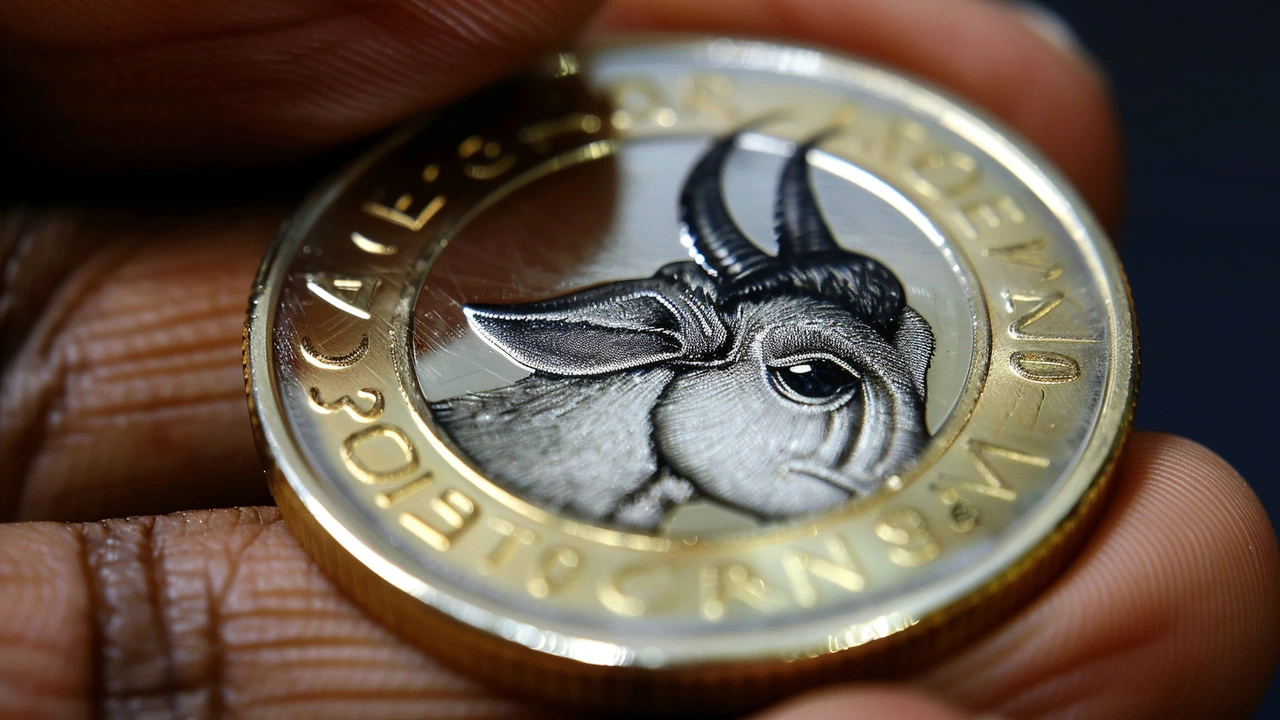Rand Weakens Amid Awaited Announcement on Cyril Ramaphosa's Cabinet
The South African rand has experienced a slight depreciation as investors eagerly await the announcement of President Cyril Ramaphosa's new cabinet members. The rand is currently trading at R18.0553 to the US dollar and R19.3806 to the euro. This decline in the rand’s value comes amid a delay in the cabinet announcement, originally scheduled for Sunday, which has now been postponed due to ongoing negotiations within the Government of National Unity (GNU) with other political parties.
TreasuryOne currency strategist Andre Cilliers pointed out that the weakness of the rand is largely attributable to the firmer dollar coupled with the uncertainty surrounding the announcement of the new cabinet. Investors had been on edge, seeking clarity on the political landscape and the direction in governance, which is now hanging in the balance pending the finalization of these negotiations. The dollar’s strength, bolstered by robust manufacturing and services PMI data, adds another layer of pressure on the rand.
Global Market Landscape
On a global scale, investors are keeping a close watch on economic data to gain insights into future inflation trends and potential interest rate moves by the US Federal Reserve. The manufacturing and services PMI data has come in stronger than expected, leading to a strengthening of the dollar and setting the tone for the global markets. The JSE All Share Index has shown resilience, managing to gain 0.54% to close at 80,196.79 points. Major European indices have also experienced a boost, reflecting investor optimism in the region. In Asia, however, the markets have had mixed responses: the Shanghai Composite Index fell by 1.17%, while Japan’s Nikkei climbed by 0.54%.
Commodity Markets
Commodities have had their share of movements as well. Gold prices have surged, currently standing at $2,331.07 per ounce, reflecting a flight to safe-haven assets amid global uncertainties. Platinum prices have also risen, reaching $1,007 per ounce. Meanwhile, Brent crude oil prices have increased by 0.42%, bringing the price up to $85.43 per barrel. These increases suggest a bullish sentiment in the commodities market, driven by ongoing geopolitical tensions and supply considerations.
Inflation and Interest Rates
Looking ahead, the market is anticipating the release of May's Personal Consumption Expenditure (PCE) data, scheduled for Friday. This data is crucial as it provides key indicators on US inflation which, in turn, could influence the Federal Reserve's future interest rate decisions. Investors globally are on the lookout for any cues that might hint at the Fed's approach to tackling inflation amidst the current economic backdrop. The anticipation surrounding these data releases and political developments highlights the fragile and interconnected nature of global financial markets.

Political and Economic Implications
The delay in President Ramaphosa's cabinet announcement is not just a political issue but also an economic one. Investors view the cabinet's composition as a reflection of the administration's policy direction and capability to implement reforms that could bolster economic growth, stability, and investor confidence. Therefore, the current postponement and ongoing negotiations signal a period of uncertainty which the markets are reacting to, causing shifts in currency valuations and investor sentiments.
President Ramaphosa’s new cabinet comes at a critical time for South Africa. The nation grapples with various economic challenges, including high unemployment rates, significant public debt, and the need for economic reforms to stimulate growth. The composition of the cabinet will be indicative of the administration's priorities and its potential to address these multifaceted issues effectively. Investors and citizens alike await the announcement, hoping for a blend of experienced and capable individuals who can navigate the nation's economic landscape and steer it towards stability and growth.
Conclusion
In essence, the marginal weakening of the South African rand amidst the awaited cabinet announcement and global economic data releases underscores the interconnectedness of political and economic dynamics. The markets’ reactions to these developments reflect broader concerns about political stability, economic policy direction, and global economic conditions. As investors keep a watchful eye on forthcoming announcements and data releases, the effects of these political negotiations and economic indicators will likely continue to reverberate through the financial markets.
In summary, the South African rand's slight depreciation against major currencies highlights the uncertainty and anticipation surrounding President Cyril Ramaphosa’s new cabinet. Investors find themselves in a holding pattern, influenced by a mix of local political developments and global economic indicators. The coming days will be critical as new data and announcements shape market sentiments and economic predictions for South Africa and beyond.







Write a comment